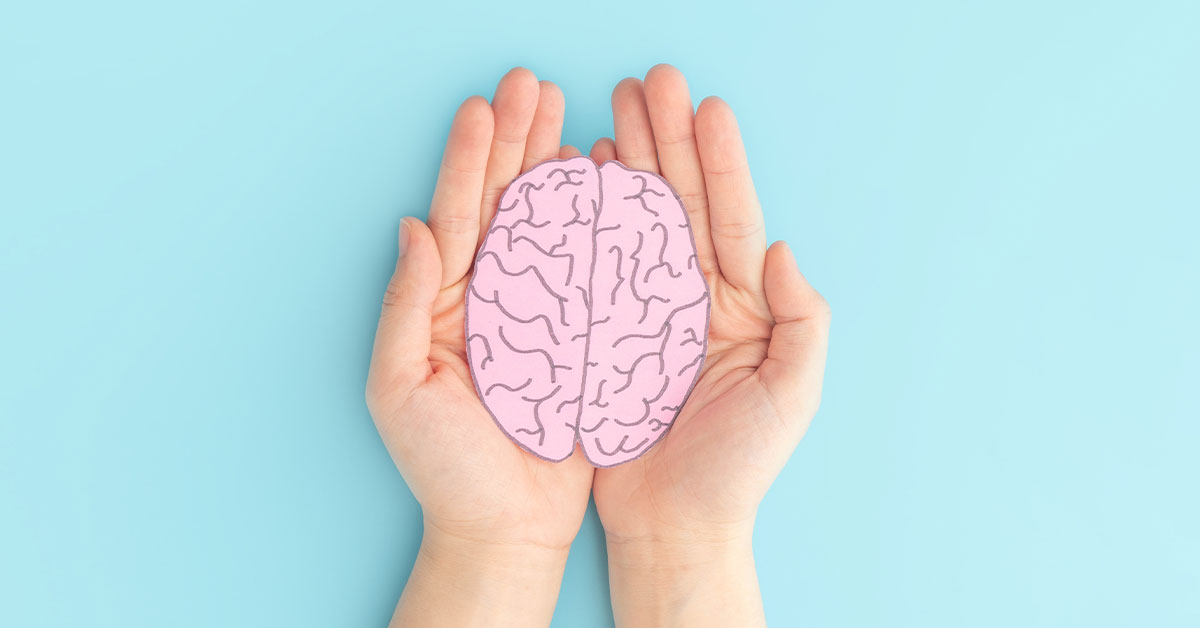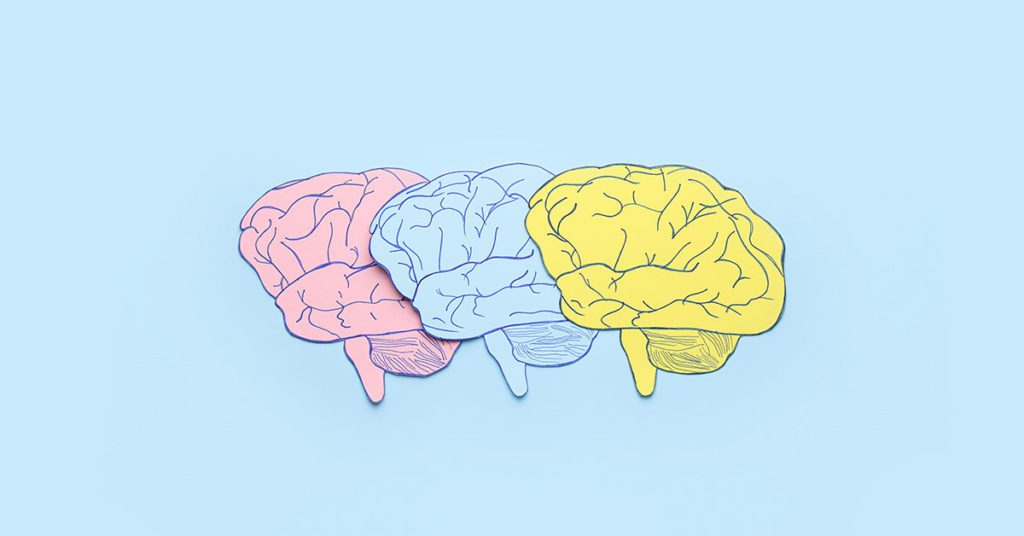According to the Alzheimer’s Association, about 50 million people worldwide live with Alzheimer’s and other dementias.
Alzheimer’s disease falls under the syndrome category of dementia, but it is not always the case that someone with dementia is also considered to have Alzheimer’s. Dementia is not a distinct disease but is instead defined as a chronic brain condition that causes issues with behavior, thinking, and memory.
What were you reading yesterday? What movie did you watch this morning? Where did you place your keys?
You might be asking yourself these questions when you’re first encountering signs of Alzheimer’s or dementia, which can bring forth recurring memory issues.
Dementia: Memory Difficulties and Other Symptoms
Dementia is a condition that affects memory, thinking, and social abilities that can greatly impact daily life. It isn’t a disease, but a series of symptoms brought on by different conditions that affect the brain. It can be brought on by many factors including vascular changes, vitamin deficiencies, and medication interactions.
It’s essential to maintain a balanced lifestyle so that you can adjust to changes your body undergoes as you age.
“There are steps we can take now to prevent the cognitive decline that experts have long believed to be unavoidable and irreversible,” says Dr. Dale Bredesen, renowned neurologist and subject matter expert on cognitive decline.
The Types of Dementia
There are many different types of Dementia. In addition to Alzheimer’s-related dementia, some of the most common types are:
Lewy Body Dementia (LBD)
According to the National Institute on Aging, Lewy body dementia affects more than one million individuals in the United States. Lewy body dementia affects cognitive abilities, with the average age of encounter being 60–85, and death typically occurring 5–6 years from the onset.
Lewy bodies are protein deposit abnormalities found in the brain tissue within the cerebral cortex. It can involve visual hallucinations, erratic changes in concentration abilities, disorganization, and difficulty in distinguishing time and place. Visual hallucinations are quite common, affecting 80% of people with Lewy body dementia.
Vascular Dementia
Vascular dementia often occurs after a stroke but that is not always the case. It can also be caused by high blood pressure and other conditions that restrict blood flow to the brain and reduce circulation. Harboring high blood pressure can cause damage to the steady blood flow throughout your body, thus posing a risk to your brain health and leading to high systolic blood pressure.
It creates issues with remembering, planning, logic, and other cognitive functions. It can result in symptoms of confusion, difficulty paying attention, unsteady gait, slowed thinking, indecisive thinking abilities, restlessness, and agitation.
Parkinson’s Dementia
The origin of Parkinson’s dementia is in the basal ganglia region of the brain, where the cells become impaired or die, affecting movement. Parkinson’s dementia begins with movement symptoms, difficulty walking, hallucinations, changes in appetite and energy, muscle stiffness, tremors, or a shuffling walk.
The average age of onset is 60. The initial stages of Parkinson’s are mild in the beginning, with signs of impaired balance and coordination, speaking softly, and mild tremors or walking difficulties. Cognitive difficulties involving poor memory recall and concentration develop about a year after movement symptoms.
Frontotemporal Dementia
Frontotemporal dementia is often initially noticed by behavior changes, issues with spatial orientation, and problems communicating. Memory loss and delusions are rarer for this type of dementia.
This type of progressive dementia affects the nerve cells in the brain and causes the lobes to shrink. It can affect the personality of patients, sometimes creating apathy or inappropriate emotional reactions.
What Are the 7 Stages of Dementia?
According to the Reisberg Global Deterioration Scale, these are the indications of the seven stages of dementia.
Stage 1: No Cognitive Decline
No indications of memory deficit symptoms.
Stage 2: Age-associated Memory Impairment
Indications of forgetfulness of familiar names and objects.
Stage 3: Mild Cognitive Impairment
Displaying signs of more than one of the following:
- geographical confusion and getting lost when traveling to an unfamiliar place
- poor work performance
- vocabulary recall deficits
- name deficits
- poor reading comprehension abilities
- misplacing objects
- concentration difficulties
Denial becomes an attribute and can be followed by symptoms of mild to moderate anxiety.
Stage 4: Mild Dementia
Exhibiting signs of not being up to date on current events, memory difficulties about personal past, concentration deficit involving mathematical computation, lowered ability to travel and manage finances, difficulties in recognizing familiar people and faces, and lack of ability to perform complex tasks. Denial sets in as a defense mechanism. They may become apathetic and withdraw from the new changing and challenging environment.
Stage 5: Moderate Dementia
The patient becomes dependent on assistance and has trouble recalling current data, including historically familiar addresses, phone numbers, and names of close family members. They may appear disoriented about time and season. They may experience indecision about their choice of clothing, but don’t typically require assistance with going to the restroom or eating.
Stage 6: Moderately Severe Dementia
Shows to be forgetful of close family members and lack of awareness of recent life events and experiences. Experiences computational problems and may exhibit personality and emotional changes involving delusional behavior, imagining people in their environment, obsessive focus on specific tasks, anxiety, agitation, and cognitive loss of willpower. They may need assistance with daily living activities such as eating or going to the bathroom.
Stage 7: Severe Dementia
Diminished verbal abilities; they may not be able to speak much beyond random words and phrases. Assistance with going to the bathroom, eating, and walking is often needed due to the loss of basic psychomotor skills at this stage.
Lifestyle Factors
Treatments for dementia may vary, depending on causational root factors.
There are some factors that Dr. Dale Bredesen indicates can either throw off the balance towards “brain tear-down” or “brain building.” When the “brain tear-down” process outperforms the brain-building process, we lose our innate abilities to create, store, and retrieve memories like we once did.
Managing stress with dementia is an ongoing activity. As the condition progresses, new situations and stressors need to be considered.
It is essential to be aware of the type of dementia you have because treatment can vary depending on which one is in play. It’s vital to keep track of symptoms as prognoses can change over time.

Alzheimer’s Disease
Alzheimer’s disease is a deteriorating brain disorder in which your memory and cognitive skills can cause everyday tasks to be increasingly hard to carry out. It is not the result of normal aging, but it does happen to be most common among individuals who are 65 years of age or older.
This condition can result in greater challenges to remember specific events, something new, or even the right words during a conversation. It is also a type of dementia, and one of the most common types that accounts for about 60-80% of dementia cases. Learn more about the difference between Alzheimer’s and dementia.
There are two baseline stages of Alzheimer’s:
- Mild cognitive impairment due to Alzheimer’s disease
- Dementia due to Alzheimer’s disease
There are varying levels of the progressive stages of difference between Alzheimer’s and dementia:
The Five Levels of Alzheimer’s
According to the Mayo Clinic, there are five Alzheimer’s stages:
Stage 1: Preclinical Alzheimer’s Disease
This stage of Alzheimer’s can last for many years, and it is the beginning of amyloid-beta protein buildup in the brain. These biomarkers are indications of early-onset Alzheimer’s disease that can show up even before symptoms become prevalent.
Stage 2: Mild Cognitive Impairment Due to Alzheimer’s Disease
During this stage, it becomes difficult for the individual to gauge the amount of time necessary to complete tasks. They often cannot decide on the amount of or order of steps required to fulfill an activity.
Stage 3: Mild Dementia Due to Alzheimer’s Disease
This stage may last about two to four years or longer. The patient may experience difficulties in retaining new data and may ask for questions to be repeated. There may be challenges with making decisions regarding problems, detailed tasks, and formulating logical conclusions. There may be personality changes due to adjustments to socially changing situations and they may become more quiet, irritable, or angry.
Stage 4: Moderate Dementia Due to Alzheimer’s Disease
This stage typically lasts about two to ten years. During this stage, the patient can become more forgetful and require assistance with daily activities, grooming, and self-care. They may begin to become unfamiliar with family members or friends and forget who they are.
Stage 5: Severe Dementia Due to Alzheimer’s Disease
This stage can last about one to three years or longer. During this stage, the patient exhibits symptoms of severe disorientation or confusion, wandering, and motor problems that will require assistance with walking. They may have difficulty communicating and can experience hallucinations, delusions, and paranoia.
They may display signs of agitation, incontinence, and require assistance with personal care. They may need help going to the bathroom, dressing, and communicating. Because they may encounter swallowing difficulties, they may also need help with eating. They may have a deficit memory in recalling close family members as well as themselves.
Routine and Self Care for Better Brain Health
Because meditation has the potential to lower stress levels and improve mental focus, it is beneficial for those working to find balance and improve memory in their daily experience with Alzheimer’s and dementia. Incorporating calm self-care activities and consistent nutrients into a routine is a great way to boost brainpower.
Both Alzheimer’s and dementia are progressive diseases with many stages, so it is crucial to establish a strong support network, proper care, and understanding for the individual with the condition.





